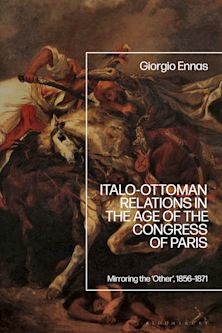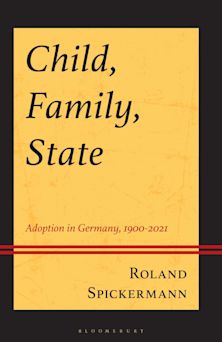- Home
- ACADEMIC
- History
- European History
- The Kingdom of Württemberg and the Making of Germany, 1815-1871
The Kingdom of Württemberg and the Making of Germany, 1815-1871
The Kingdom of Württemberg and the Making of Germany, 1815-1871
You must sign in to add this item to your wishlist. Please sign in or create an account
Description
CHOICE Outstanding Academic Title 2017
This book examines the 1871 unification of Germany through the prism of one of its 'forgotten states', the Kingdom of Württemberg. It moves beyond the traditional argument for the importance of the great powers of Austria and Prussia in controlling German destiny at this time. Bodie A. Ashton champions the significance of Württemberg and as a result all 38 German states in the unification process, noting that each had their own institutions and traditions that proved vital to the eventual shape of German unity.
The Kingdom of Württemberg and the Making of Germany, 1815-1871 demonstrates that the state's government was dynamic and in full control of its own policy-making throughout most of the 19th century, with Ashton showing a keen appreciation for the state's domestic development during the period. The book traces Württemberg's strong involvement in the national question, and how successive governments and monarchs in the state's capital of Stuttgart manoeuvred the country so as to gain the greatest advantage. It successfully argues that the shape of German unification was not inevitable, and was in fact driven largely by the desires of the Mittelstaaten, rather than the great powers; the eventual Reichsgründung of January 1871 was merely the final step in a long series of negotiations, diplomatic manoeuvres and subterfuge, with Württemberg playing a vital, regional role.
Making use of a wealth of primary sources, including telegrams, newspaper articles, diary entries, letters and government documents, this is a vitally important study for all scholars and students of 19th-century Germany.
Table of Contents
List of Maps
Introduction
1. States and the Nation in the Late-Eighteenth and Early-Nineteenth Centuries
2. Independence and Early South German Particularism
3. Models of German Unification, 1815-1848
4. The Years of Prophecy and Change, 1848-1849
5. Counterrevolution, Reaction and Reappraisals, 1850-1859
6. Six Years of Autumn, 1860-1866
7. The Unification of Germany, 1866-1871
8. Remembering and Forgetting Württemberg, 1871-1914
Conclusion
Bibliography
Index
Product details

| Published | 12 Jan 2017 |
|---|---|
| Format | Ebook (PDF) |
| Edition | 1st |
| Extent | 240 |
| ISBN | 9781350000087 |
| Imprint | Bloomsbury Academic |
| Illustrations | 5 bw illus |
| Publisher | Bloomsbury Publishing |
About the contributors
Reviews
-
Bodie A. Ashton makes an important contribution to the German and regional history of the 19th century with his book. It is recommended.
H-German
-
[The book] offers in a concise way a good overview of Württemberg's room for manoeuvre and initiatives with regard to the German Question between 1815 and 1871.
German History
-
This comprehensive book represents nothing less than the current state of research on the history of nineteenth-century Württemberg, and it will surely find readers in the other remaining Mittelstaaten as well.
European History Quarterly
-
A succinct book, whose valuable contribution to the transfer of knowledge across different historiographies should be acknowledged.
German Historical Institute London Bulletin
-
This is a clearly presented, well-researched, and very readable account of the multifaceted role the middle-seized German state of Württemberg – the home of Friedrich Schiller, Hermann Hesse, and Albert Einstein – played in the process of German unification. Intimately familiar with the historiography, Bodie Ashton offers a fresh and interesting perspective on this rich topic.
Hermann Beck, Professor of History and International Studies, University of Miami, USA
-
This is a very welcome contribution to nineteenth-century German history. Bodie Ashton's new study of the small South-west German state of Württemberg retells the history of the movement for German unification from an unfamiliar vantage point. In calling into question some of the assumptions of an older body of literature, Ashton gives us the benefit of a more plural and more open-ended history of German unification, at the same time as demonstrating why some alternative ideals of the nation-state ultimately failed.
Andrew Bonnell, Associate Professor in History, University of Queensland, Australia

ONLINE RESOURCES
Bloomsbury Collections
This book is available on Bloomsbury Collections where your library has access.



































